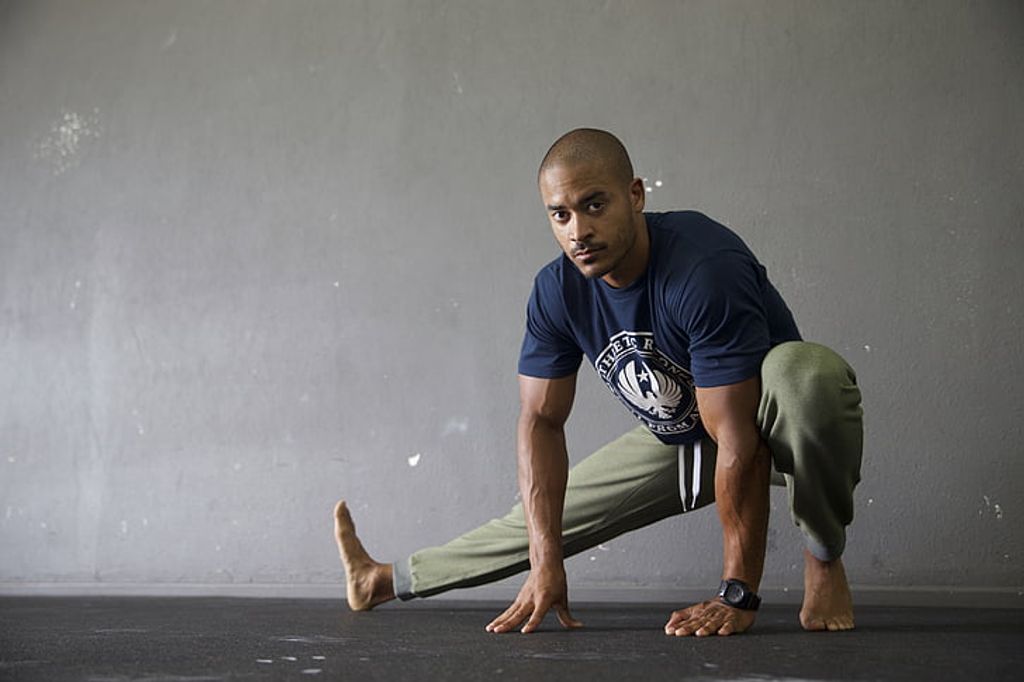
Maximizing Muscle Repair: Best Practices for Recovery After a Workout
Recovery Foods: Fueling Your Muscles

The Power of Protein
After pushing your muscles to the limit, it's crucial to give them the building blocks they need to repair and grow stronger. Protein is the superhero of muscle recovery, providing the essential amino acids that act as the foundation for muscle repair. Not all proteins are created equal, though. Your muscles crave quality protein that's easy to digest and packed with nutrients.
Here's a quick rundown of some top protein picks for post-workout recovery:
- Greek yogurt: Rich in casein, a slow-digesting protein perfect for long-term repair.
- Eggs: Contain all nine essential amino acids and are super versatile.
- Chicken breast: A lean source that's low in fat and high in protein.
- Plant-based options: Think tofu, tempeh, and lentils for those on a plant-forward diet.
Remember, timing is everything. Try to get that protein hit within 45 minutes after your workout to maximize muscle repair.
While protein is key, it's not the only player in the recovery game. Stay tuned for how carbs and healthy fats also contribute to your post-workout success.
Carbs for Energy
When it comes to refueling after a workout, don't shy away from carbohydrates. They're your body's main source of energy and are crucial for replenishing glycogen stores in your muscles. Complex carbs like whole grains, fruits, and vegetables are especially beneficial, as they provide a steady release of energy, rather than the spikes associated with simple sugars.
Glycogen replenishment is vital for recovery, particularly if you're doing endurance sports or intense training sessions. Here's a quick list of carb-rich foods that can help:
- Sweet potatoes
- Quinoa
- Brown rice
- Oats
- Bananas
- Berries
Remember, timing is key! Consuming carbs within 30 minutes after your workout can significantly improve your recovery process.
Healthy Fats for Repair
While protein often takes the spotlight in post-workout nutrition, healthy fats play a crucial role in muscle repair. These fats are essential for reducing inflammation and helping to rebuild cell membranes.
Omega-3 fatty acids, found in fish and flaxseeds, are particularly beneficial for their anti-inflammatory properties. Incorporating a balance of fats into your diet can support recovery and overall health. Here's a quick list of healthy fat sources to consider:
- Avocado
- Nuts and seeds
- Olive oil
- Fatty fish like salmon
Remember, moderation is key. Including healthy fats in your meals can aid in recovery, but they are also calorie-dense. Balance is essential.
Including these fats in your diet isn't just about eating them in isolation. Combine them with proteins and carbs to create well-rounded meals that support all aspects of recovery.
Rest and Recovery: Essential for Growth

The Importance of Sleep
Getting enough sleep is crucial for muscle repair and overall recovery. When we sleep, our bodies enter a state of repair, releasing growth hormones and repairing the micro-tears in muscle fibers caused by intense workouts. Aim for 7-9 hours of quality sleep each night to give your muscles the time they need to rebuild stronger.
Sleep isn't just about quantity; it's also about quality. Ensure your sleeping environment is conducive to rest by keeping it dark, quiet, and cool.
Here are a few tips to enhance your sleep quality:
- Stick to a consistent sleep schedule, even on weekends.
- Avoid caffeine and heavy meals close to bedtime.
- Wind down with a relaxing pre-sleep routine, like reading or taking a warm bath.
Remember, without adequate rest, your muscles can't fully recover, and your performance may suffer as a result. Prioritize sleep just as you would your training and nutrition.
Active Recovery Techniques
Taking a day off doesn't mean you have to be completely still. Active recovery is a gentle way to engage your muscles without overworking them. Think of it as a low-intensity workout that gets the blood flowing and helps your muscles heal.
- Light jogging or walking
- Swimming
- Yoga or Pilates
- Cycling at a relaxed pace
These activities promote circulation, which is crucial for delivering nutrients to your muscles and clearing out waste products. It's about finding the balance that works for you—not too hard that it hinders recovery, but just enough to keep the body moving.
Remember, active recovery should feel good. If you're sore or tired, dial it back. Listen to your body and give it the care it needs to bounce back stronger.
Mindfulness and Stress Reduction
In the hustle of hitting those fitness goals, it's easy to forget that your mind needs a cooldown too. Mindfulness can be a game-changer in muscle recovery, as it helps reduce stress levels, which can otherwise sabotage your recovery efforts. Taking time to meditate or engage in deep-breathing exercises can significantly lower cortisol, the stress hormone, promoting better recovery.
Stress reduction isn't just about feeling good—it's about giving your muscles the serene environment they need to repair and grow. Here's a simple mindfulness routine you can follow post-workout:
- Sit or lie down in a comfortable position.
- Close your eyes and take deep, slow breaths.
- Focus on each breath as you inhale and exhale.
- If your mind wanders, gently bring your focus back to your breathing.
- Continue for 5 to 10 minutes.
Remember, a calm mind fosters a body that's primed for recovery. Incorporating mindfulness into your routine isn't just a luxury; it's a crucial part of the recovery process that can lead to better performance and overall well-being.
Optimizing Hydration: Water for Muscle Repair

Hydration and Muscle Function
Staying hydrated isn't just about quenching thirst; it's crucial for keeping your muscles in top shape. Water is the main component of muscle cells, and it plays a vital role in transporting nutrients and oxygen to those cells, facilitating muscle repair and growth post-workout.
Hydration also affects the joints by maintaining the lubrication they need to function smoothly. Without adequate water, your muscles can't perform at their best, and you might experience muscle fatigue or cramps more quickly.
- Drink water before, during, and after your workout
- Monitor your urine color for hydration levels (pale yellow is ideal)
- Listen to your body's thirst signals
Remember, your muscles need water like engines need oil; it's essential for optimal performance and recovery.
Electrolytes and Performance
When you're sweating it out at the gym, you're not just losing water; you're also sweating out electrolytes like sodium, potassium, and magnesium. These minerals are crucial for muscle function and performance. Without them, you might notice your muscles cramping up or feeling more fatigued than usual.
Keeping your electrolyte levels balanced is key to maximizing your workout performance and recovery.
Here's a quick rundown on why each electrolyte is a big deal:
- Sodium: Helps maintain fluid balance and nerve function.
- Potassium: Crucial for muscle contractions and heart function.
- Magnesium: Aids in muscle relaxation and energy production.
Remember, replenishing electrolytes after a workout can help prevent muscle soreness and fatigue. So, don't skimp on the electrolyte-rich fluids or foods!
Hydration Tips for Recovery
Staying hydrated isn't just about chugging water before and after your workout. It's a day-long commitment that requires attention and a bit of know-how. Keep a water bottle handy at all times; it's the simplest way to ensure you're sipping regularly throughout the day.
Hydration isn't just about water, though. Your muscles scream for electrolytes to help them recover and function at their best. Here's a quick list to keep your hydration game on point:
- Start your day with a glass of water to kickstart hydration.
- Drink fluids consistently, not just when you're thirsty.
- Include natural electrolyte sources in your diet, like bananas and coconut water.
- Monitor the color of your urine – it's a good indicator of your hydration level.
Remember, the goal is to drink enough fluids to stay ahead of your body's demands, especially after a sweat-inducing workout. Too little and your muscle repair could stall; too much and you might feel bloated and uncomfortable.
Lastly, don't underestimate the power of a good hydration strategy. It can make the difference between feeling just okay and feeling ready to conquer your next workout session.

